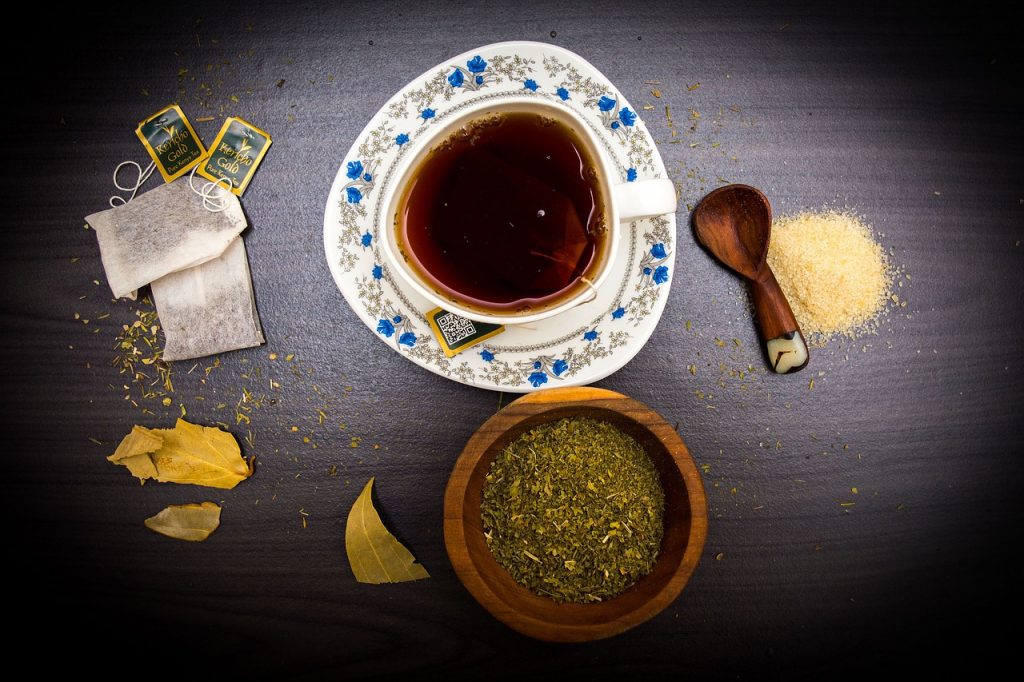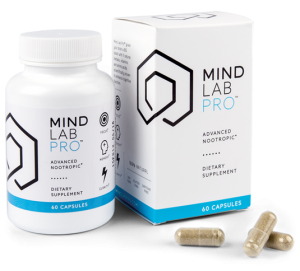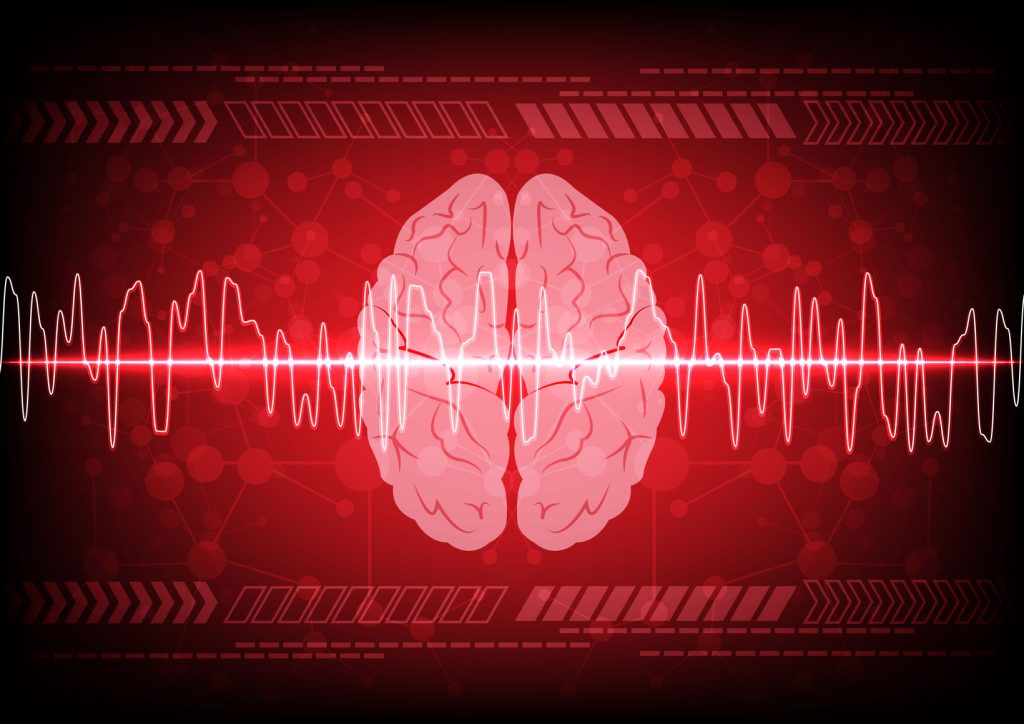
Summary: L-Theanine Review
L-theanine calms the mind without sedating it. Tea supplies some L-Theanine, but all the cool nootropic kids are supplementing this nootropic in higher doses to achieve its peak focus-boosting potential. L-Theanine seems to work by modulating alpha brainwaves for a meditative state of concentration and focus. Stacking the amino with caffeine is one of the more popular routes of administration for the duo’s complementary effects on stimulation and relaxation.
What do you do when you’re stressed, anxious, distracted, annoyed, and altogether just feeling a little cranky?
That’s right: You take a chill pill.
If you’re one of the unenlightened, you probably think “chill pill” is some kind of vague metaphor for a “positive attitudinal shift.” When in reality it’s L-Theanine, the calming compound commonly associated with green tea–as well as other tea variants of Camellia sinensis.
If you’re one of the slightly-more-enlightened-but-still-unenlightened, you probably think L-Theanine is only consumable via brewed tea. But I’m here to tell you that, thanks to nootropic supplement technology, L-Theanine is quite literally a chill pill if you take it in supplement pill form.
Which is the way to go if you want those amino alpha brainwave benefits.
Page Contents
How L-Theanine Is Supposed to Work
L-theanine is one of the most popular, well-regarded natural nootropics, and for good reason: L-theanine simply works.

To be honest, I’m not entirely sure how it works: Word on the street it promotes alpha brainwaves, which is why stacks like Alpha BRAIN carry L-Theanine as a leading ingredient. Mind Lab Pro going even further with the Suntheanine® branded L-Theanine. I suppose they’re simply happy with the fact that L-Theanine boosts alpha brainwaves.
But I want to know HOW does L-Theanine boost brainwaves??
Especially considering that few other compounds can do this.
I want to know the mechanism behind this mechanism, because, frankly, it’s a pretty damn good mechanism. It’s the reason I prefer green tea over coffee. It’s the reason many teas are awesome in general.
Thanks to its ability to cross the blood-brain barrier, L-Theanine can achieve nootropic benefits within 30 to 45 minutes. This is great for a fast-acting cognitive boost, yet what many fail to remember (or fail to ever know) is that L-Theanine also provides long-term neuroprotective advantages.
But I’m getting ahead of myself.
To get a bigger picture on how L-Theanine works, here are a few of its biomechanisms as I understand them thus far:
Modulating Alpha Brainwaves
That’s right: Brains wave. Through electricity! And the particular brainwave of interest here is the alpha brainwave, a mindstate associated with feelings of alert relaxation and creativity.
How do we know this?
When you add up all of the electrical impulses in the brain, you get a frequency that determines the nature of the brainwave. Different frequencies of impulses induce different brainwaves, measured by an electroencephalogram (EEG) test. The four primary brainwaves include: Alpha, Beta, Delta, and Theta. Of these brainwaves, the alpha state has been observed via EEG to be the predominant frequency following L-Theanine supplementation.
Calming “Excitable” Neuroactivity
Through inhibiting the release of glutamate, L-Theanine damps down “excitable” brain chemicals, thus protecting against mental overstimulation. Stress, Anxiety, Agitation–these are the moods often associated with this type of biopathway. L-Theanine’s engagement (via inhibition) in this pathway essentially explains its mood boosting benefits, particularly when your mood is feeling low. The bioactions involved may have neuroprotective potential as well, countering age-related cognitive decline.
Promoting “Calming” Neurotransmitters
L-Theanine boosts feel-good brain chemicals such as serotonin, dopamine, and GABA, while also modulating neuron-neurotransmitter receptors. The latter two chemicals in particular have been associated with positive mood balance. The best part: None of L-Theanine’s calming effects include sedation, which is a focus-killer for obvious reasons.
L-Theanine Benefits
Few nootropics directly engage brainwaves, making L-Theanine uniquely valuable. The focus on alpha brainwaves in particular sets L-Theanine up as one of my favorite nootropics, and one of the hot topic subjects on Reddit, which ranks this amino acid as one of the premier go-to nootropics for nootropic initiates.
I have to say, even as a nootropic veteran, L-Theanine retains its value.
The big benefit of this nootropic: Relaxed focus.
If you’ve ever drank a lot of green tea, then you now what I’m talking about. The L-Theanine experience is essentially summed up as being tuned in minus all of the jitters commonly associated with focus enhancers. For the most part, L-Theanine’s non-stimulating, non-sedating focus is unmatched by any other compound.
Try L-Theanine + Caffeine
The L-Theanine + Caffeine combo is a nootropic classic for its complementary relaxation + stimulation effect. You can acquire this duo by simply drinking any tea variation of Camellia sinensis–however, to get the true nootropic experience, you’ll need to go for a 2:1, or at least 3:2, L-Theanine to Caffeine ratio. In other words, 150-200 mg L-Theanine per 100 mg Caffeine. More on Caffeine.
Researchers Have Suggested L-Theanine Might:
Promote Relaxed “Mental Alertness” without Drowsiness
In this study on the “realistic dietary levels” of L-Theanine (i.e. L-Theanine consumed via tea), EEG was measured on healthy, young participants after administration of either 50 mg L-Theanine or placebo. For the L-Theanine group, alpha brainwave activity showed a greater increase. Due to the association between alpha brain activity and attention, as well as later trials that observed L-Theanine’s ability to relax the mind without inducing drowsiness, the researchers were able to conclude that L-Theanine has a “significant effect on the general state of mental alertness or arousal.”
Reduce Psychological and Physiological Stress
This double-blind study is a small one, observing only 12 subjects who were given either L-Theanine or placebo to assess the amino acid’s effect on acute mental stress spurned by math problems (that is stressful!). Administration of L-Theanine or placebo took place prior to and midway through the experimental trials, after which the researchers compiled results on heart rate and salivary stress levels. The lower heart rate and stress level measures associated with L-Theanine administration lead to the conclusion that L-Theanine seemed to “cause anti-stress effects via the inhibition of cortical neuron excitation.”
Possess Neuroprotective Effects on Cognitive Dysfunction
Operating on the basis that L-Theanine can pass through the blood-brain barrier and affect neurotransmitters glutamate and glutamine, the researchers of this study supplied 47 mg/day L-Theanine (as powdered green tea) to elderly volunteers to see how the amino might affect age-related cognitive dysfunction. When compared to the placebo group, L-Theanine administration was found to “significantly lower decline in cognitive function,” suggesting that L-Theanine might possess neuroprotective benefits for elderly users.
Support Sleep Quality and Recovery
Interestingly, although L-Theanine doesn’t demonstrate sedative effects, this study observed the administration of 200 mg L-Theanine before bed in relation to a number of sleep quality measures, finding that the amino acid qualified as a “safe, natural sleep aid.” The improvement in sleep quality wasn’t linked to sedation but rather to the calming, anxiolytic effects of L-Theanine. With that in mind, the researchers noted that L-Theanine makes for a unique sleep aid in that it may be useful at any time of day for its non-drowsy calming benefits.
How to Take L-Theanine
- On average a 200 ml cup of green tea contains 7.9 mg L-Theanine.
- For black tea, that number bumps up to 24.2 mg L-Theanine.
- The longer the tea is brewed, the higher the L-Theanine concentration.
- For nootropic purposes, L-Theanine supplementation ranges from 100 mg – 200 mg dosages. Splitting that right down the middle to 150 mg seems like an appropriate serving size, with 400 mg being an acceptable daily intake.
My Experience with L-Theanine
As much as I am a nootropic geek, I’m also a major tea geek. Irish Breakfast Black Tea. Monkey Picked Oolong. Sencha Gojiberry. To name just a few bags of loose leaf I have sitting right in front of me… And no matter if I’m supplementing L-Theanine or not, I’m still drinking those teas.
Yet, I’m not under the illusion that drinking a cup of green tea equals the nootropic power of, say, a 200 mg dosage of L-Theanine. I’d have to a lot of heavily brewed green tea in quick succession to achieve this effect, and I’m not sure if that’s worth it. However, there’s a lot of healthy antioxidant action happening there not accomplished by straight L-Theanine supplementation.
Even so, if cognitive enhancement is my goal, I opt for the L-Theanine supplement for quicker, more potent focus benefits. Occasionally, I toss in a caffeine supplement as well — however, I’m more inclined to mix my L-Theanine with coffee.
Let’s just say I like the taste.
My experience parallels that described by the science: I’m tuned in, but not bouncing off the walls. I’m relaxed, but not falling out of my chair. Creative insights engage my thought process in easy, voluble conversation. Put simply: I feel good.
On L-Theanine, I can get my work done, then immediately celebrate with a nap. Both actions being supported by this groovy nootropic.
Is L-Theanine a Good Nootropic?
L-Theanine is one of those rare nootropics that delivers a nearly universal experience. Both scientific and anecdotal reports agree on this amino acid: L-Theanine supports focus and relaxation without any stimulation or sedation.
For nootropic-minded coffee drinkers, it’s practically a must-have for its complementary effects on caffeine. For nootropic-minded people in general, L-Theanine is almost a necessary addition to any stack since there isn’t anything else quite like it.
Other awesome nootropics may affect cognition by enhancing brain chemicals, circulation, stimulation, etc., but L-Theanine is one of the rare brainwave modulators. The result being a positive mindset and brain health state otherwise accomplished only through meditation.
If you’re a tea drinker, you’re already somewhat familiar with L-Theanine’s benefits.
But if you want to get the full effect, I recommend trying an L-Theanine supplement.
Best Nootropic Supplement with L-Theanine
For awhile I enjoyed L-theanine as a standalone supplement. Life has enough of an edge to warrant a daily L-theanine dose — with or without coffee. However, the more I’ve delved into the world of nootropics, the more I enjoy stacking L-theanine with other effective cognitive enhancers, particularly if their bio-effects mesh well with those of L-theanine. The best nootropic supplement with L-theanine I’ve found thus far is:
Mind Lab Pro
 Mind Lab Pro is an all-natural nootropic brain health stack with no stimulants and no synthetics. Which means that Mind Lab Pro’s L-theanine content (supplied in premium form: Suntheanine®) comes uncontested by any stimulating push-back.
Mind Lab Pro is an all-natural nootropic brain health stack with no stimulants and no synthetics. Which means that Mind Lab Pro’s L-theanine content (supplied in premium form: Suntheanine®) comes uncontested by any stimulating push-back.
It’s straight-up high quality L-theanine — no caffeine, no racetams; nothing of that sort.
And that’s what I enjoy about Mind Lab Pro’s approach to mental calm: it isn’t offset by cheap-O stimulation (i.e., caffeine), allowing MLP’s users to stack this awesome brain health supplement with additional caffeine if that’s what the user wants — or not at all.
It also allows MLP users to enjoy both L-theanine’s complementary effects with your morning joe and the amino’s nightly sleep aid boosts prior to bedtime. Fight-Flight! or Rest-Digest — Mind Lab Pro’s L-theanine fits on both ends of the spectrum.
Want some? Buy Mind Lab Pro here.
Read my in-depth review on Mind Lab Pro.
Overall L-Theanine Nootropic Power Rating
[yasr_multiset setid=0]

